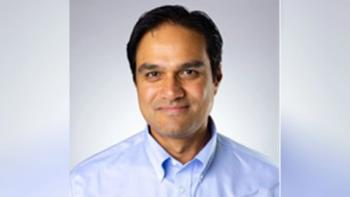
New Study Reveals How Much Family Caregivers Would Make if Paid a Salary
The study, released by Otsuka, reveals that caregivers perform the work of highly paid professionals.
Everyone knows that being a caregiver is hard, but a new study reveals just how much work it entails.
Otsuka released the results of a study focused on caregivers and how much work they do, specifically family caregivers dealing with a loved one suffering from Alzheimer’s.1 According to the study, titled America’s Unseen Workforce: What If Caregivers Were Paid a Salary?, the amount and quality of work performed by caregivers is equal to a salary of about $114,000. Of course, most caregivers do not get paid to care for family members.
In a press release, Otsuka vice president of corporate affairs said, “This timely research documents the financial impact of family caregiving to a critical segment of our population who serve as the primary support system for their loved ones. We need to re-envision healthcare and social support networks to safeguard the well-being of family caregivers and the loved ones they tirelessly serve. This community deserves to be supported with resources that offer a tangible impact in their lives. Sponsoring this study is part of a larger corporate caregiver commitment by Otsuka to advocate for family caregivers everywhere. We stand ready to work with policymakers who want to relieve the burdens caregivers face by providing other means of financial or logistical support.”
Salary.com managing director Greg Wolf commented in the same press release, saying, “Much of the conversation around the economic value of unpaid family caregivers of those living with Alzheimer’s or other dementias provides the big picture view, and while critical to understanding the landscape, it doesn’t depict the immense loss and burden on individual caregivers. This research shows that these family caregivers are taking on a full-time job, requiring a complex skillset, that would equal significant income if in the paid workforce.”
In other news, Otsoka recently announced a collaboration with Mental Health America to address mental health inequities across the state of New Jersey.2
In a press release, Otsuka North American Pharmaceutical Business president and CEO Takek Rabah said, “It is our privilege to walk alongside the communities we serve as allies and advocates to overcome barriers and reduce inequities. We are happy to support this unique program which shifts the decision making to the community leaders who intimately understand the challenges of their members and can best identify the adequate resources needed to enable them to feel supported and empowered.”
As part of the collaboration, a grant was provided to Young Audiences, New Jersey & Eastern Pennsylvania. The organization’s president and CEO Michele Russo said, “ Arts education experiences, led by trained teaching artists, are critical to children’s development by helping them to better cope with their feelings, to bounce back from adversity, and to show tolerance and compassion for others.”
Fellow grant recipient Mental Health Association of New Jersey CEO Carolyn Beauchamp added, “This pilot epitomizes our mission to engage at the grassroots community level to understand and empower persons living with a mental health condition and to lead the way in identifying the core issues and barriers that prevent equitable access to mental health care and support.”
Sources
- New Study Finds Family Caregivers Would Earn Six Figures If Paid A Salary. Otsuka. October 14, 2024. Accessed October 17, 2024. https://www.businesswire.com/news/home/20241014904935/en/New-Study-Finds-Family-Caregivers-Would-Earn-Six-Figures-If-Paid-A-Salary
- Mental Health America and Otsuka Collaborate to Address Mental Health Inequities in New Jersey Communities. Otsuka. October 8, 2024. Accessed October 17, 2024. https://www.otsuka-us.com/news/mental-health-america-and-otsuka-collaborate-address-mental-health-inequities-new-jersey
Newsletter
Lead with insight with the Pharmaceutical Executive newsletter, featuring strategic analysis, leadership trends, and market intelligence for biopharma decision-makers.




